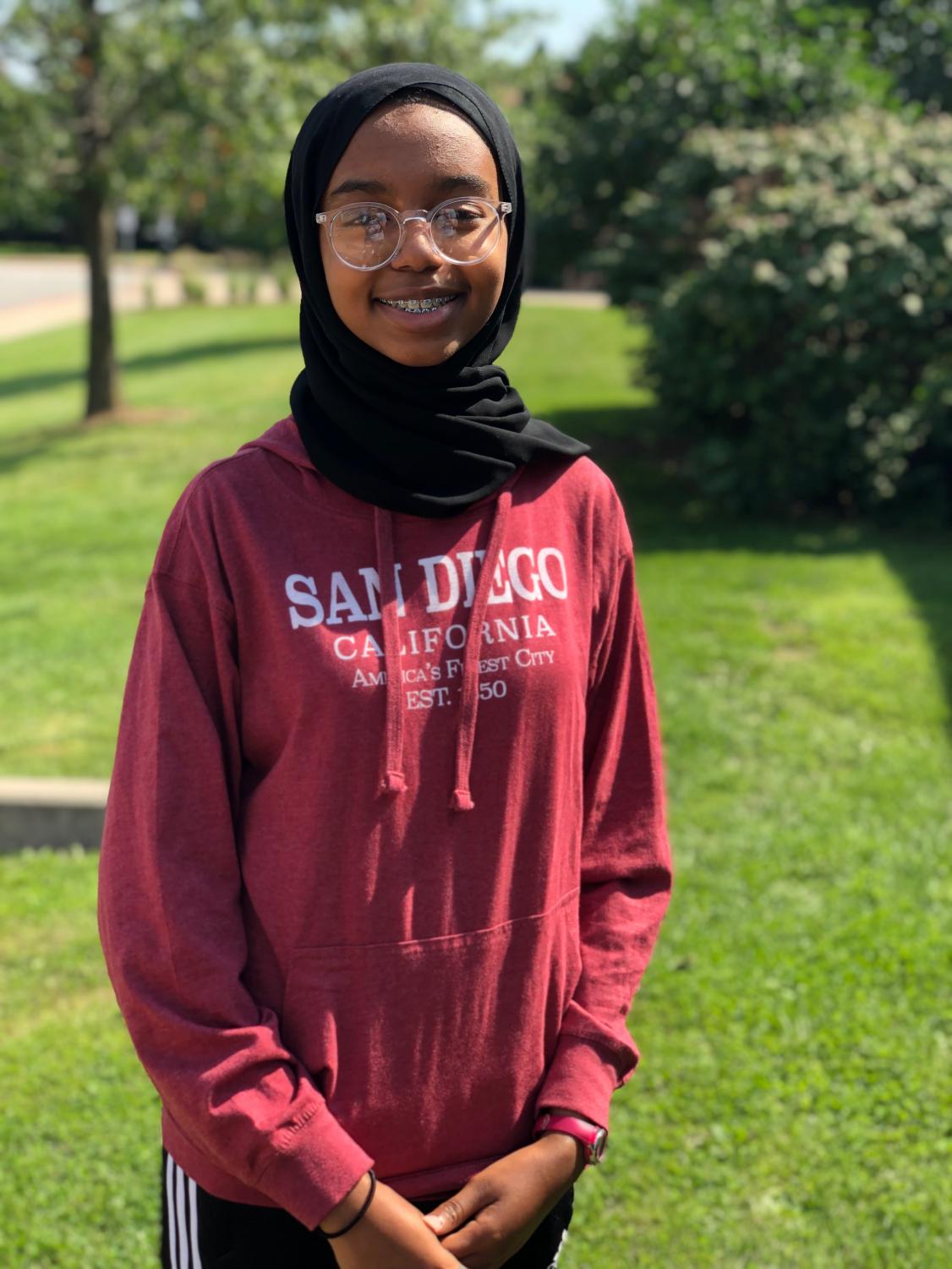Preconceived notions
Ruba Ahmed-Abdelmutalab is a Muslim, African-American woman, who has dealt with many stereotypes about her, her friends, and her family.
Everyone has a story unique to them. Just as every person can be a book, full of stories who make them who they are, other people can judge them just by their cover. Ruba Ahmed-Abdelmutalab ’22 is no exception to this rule. As much as she has a story, parts of her stories are dictated by strangers.
People’s preconceived notions of Ahmed-Abdelmutalab stop them from learning her true self. This happens to her in many different ways, especially people’s assumptions of her intelligence. While going to the store, Ahmed-Abdelmutalab encounters many similar recurring stereotypes; “They expect me to be like, ‘what am I supposed to do?’”
When Ahmed-Abdelmutalab’s mother, Mrs. Khallafalla, first came to the U.S, she had henna drawn on her hands. The worker “refused to take the passport because she thought it was a disease in my body,” Mrs. Khallafalla remembers.
 When sophomore Razan Babiker’s mother had an appointment at the hospital, the receptionist was very adamant about having a translator for her. Babikiker recalls the receptionist saying, “you can’t go in unless you get like a translator.”
When sophomore Razan Babiker’s mother had an appointment at the hospital, the receptionist was very adamant about having a translator for her. Babikiker recalls the receptionist saying, “you can’t go in unless you get like a translator.”
But why have stereotypes occurred more recently? After 9/11, there was a 1600% increase of hate crimes against Muslim Americans. Eighteen years later, Ahmed-Abdelmutalab’s life is still being partly dictated for her due to events that happened before she was born.
Mrs. Khallafalla, recalls what it was like for her after 9/11, and for many other Muslim women, “the day of the twin tower incident, many Muslim woman made the decision to take off their hijab out of terror, since the Muslims were the ones being blamed. However, me and a couple others stuck to our hijabs because by taking them off it would prove that the tragedy, indeed, had to do with Muslims.”
Stereotypes against many Muslim Americans invalidate feelings or emotions that any person would have. Ahmed-Abdelmutalab recalls what Muslim Americans are supposed to be like in a post 9/11 world: “Muslims are expected to be aggressive and extremely religious.”
These stereotypes have made it so that Ahmed-Abdelmutalab can’t feel angry or upset about preconceived notions about her or her family without being stereotyped further so.
Not only stereotypes are present in her life; many invalidating questions and comments about her religion emerge as well. Ahmed-Abdelmutalab recalls many reactions from her peers when she started wearing her hijab: “They’re like, why are you wearing it? Like, your hair looks fine. Here’s the thing… there’s a deeper meaning to it than just a piece of cloth on my head.”
These sorts of comments and questions would make almost anyone wonder why they were doing what they were doing, but Ahmed-Abdelmutalab has never doubted why she does what she does: “I haven’t asked myself, like, ‘why do I wear them?’ Because I already know the answer.”
Ahmed-Abdelmutalab has a message for others who are stereotyped: “Do whatever you want to do. Don’t let that get in your way. And your beliefs, your expectations, what you want to do with your life and stuff. Because only you can define yourself.”
Mrs. Khallafalla also has words on what she hopes our world can look like; “We could either fight each other because of these differences or we could accept one another and embrace our uniqueness.”